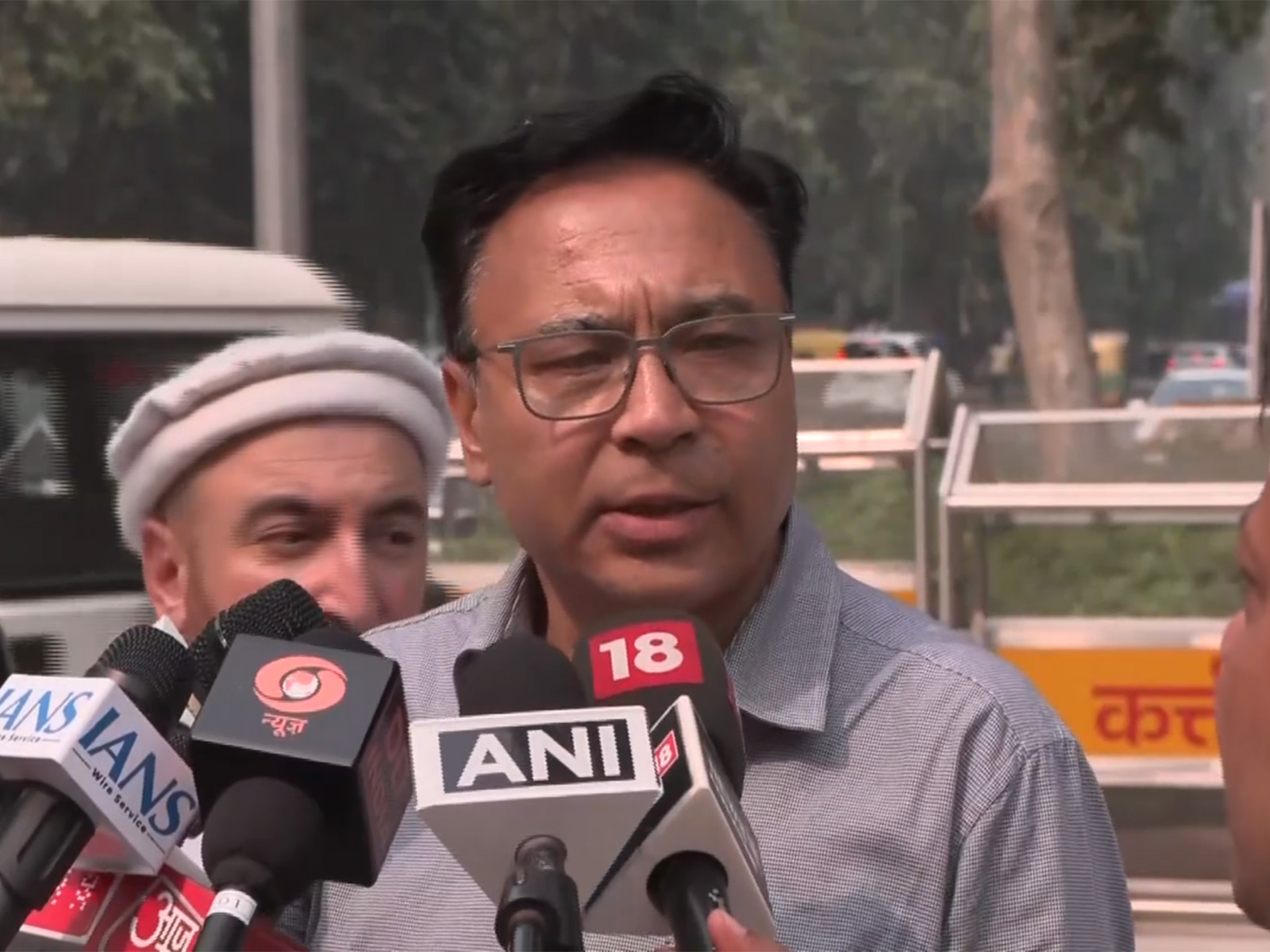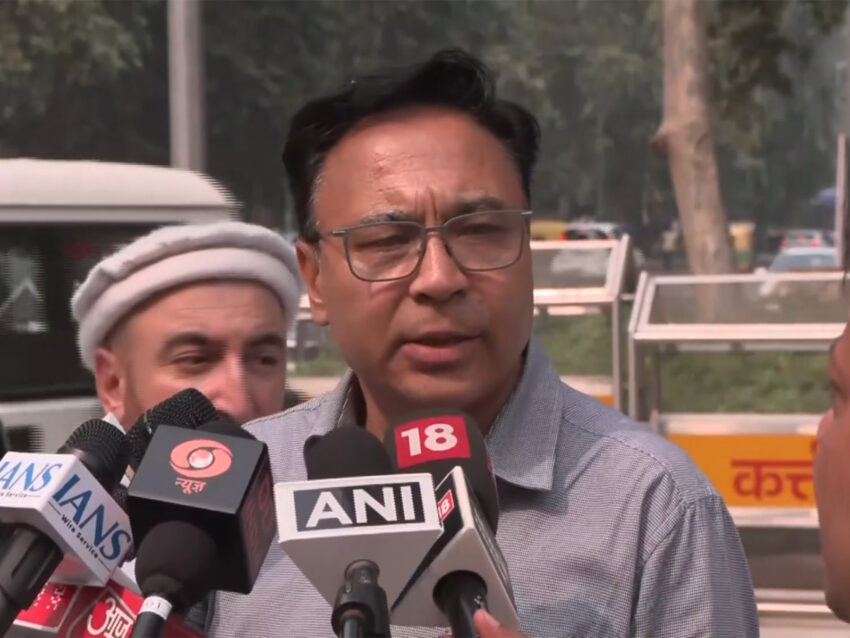
New Delhi [India], October 22 (ANI): In a major move to end the months-long stalemate, a delegation comprising members of the Leh Apex Body (LAB) and the Kargil Democratic Alliance (KDA) on Wednesday resumed dialogue with the Centre, focusing on a four-point agenda– statehood for Ladakh, inclusion under the Sixth Schedule, reservation safeguards, and the revocation of the National Security Act (NSA) imposed on activist Sonam Wangchuk.
The issues were deliberated during an almost two-hour meeting between senior officials of the Ministry of Home Affairs and a nine-member delegation, which included three representatives each from the Leh Apex Body (LAB) and Kargil Democratic Alliance (KDA), along with Ladakh MP Mohd Haneefa Jan.
Haneefa Jan, who was part of the nine-member delegation, told ANI that “the discussion primarily revolved around four major issues – statehood for Ladakh, inclusion under the Sixth Schedule, reservation matters, and the revocation of the National Security Act (NSA) against climate activist Sonam Wangchuk.”
Haneefa said the talks were held in a positive atmosphere, with both sides showing willingness to continue engagement.
“We had a constructive discussion on all four points. There was mutual understanding on the need to safeguard Ladakh’s identity and ensure justice and fair representation for its people,” Haneefa said.
On the first two issues – statehood and Sixth Schedule inclusion — the delegation reiterated that these were essential for protecting Ladakh’s land, culture, and employment rights. On the reservation issue, both sides agreed to hold further deliberations soon to arrive at a mutually acceptable formula ensuring fair opportunities for all communities.
The delegation also raised Sonam Wangchuk’s case, urging the government to withdraw the NSA imposed on him, terming it vital for restoring public trust and fostering consensus in the region.
The meeting came as part of renewed engagement after months of deadlock between the Centre and Ladakh’s two major socio-political coalitions — the LAB and the KDA. The dialogue resumed following the MHA’s October 17 announcement of a judicial inquiry into the September 24 Leh violence, which left four dead and over 80 injured, fulfilling one of the preconditions set by LAB and KDA to return to the table.
Haneefa described the meeting as “a positive step forward”, expressing optimism that continued dialogue on the four-point agenda would help chart a lasting solution for Ladakh’s constitutional and governance concerns.
On the meeting, Member of Kargil Democratic Alliance, Sajjad Hussain Kargili, said, “Our demand for the past six years has been democracy in Ladakh. A great solution for this is statehood in Ladakh… This issue can not be resolved in one or two meetings. It will take a process, and that process is ongoing. We discussed the implementation of a reservation policy in Ladakh. We also talked about the release of detainees of the 24 September incident, which also includes Sonam Wangchuk. We have also asked for compensation for the people who died or were injured in that incident.”
The meeting assumes significance as the LAB had earlier announced on September 29 that it would stay away from talks with the high-powered MHA committee, originally scheduled for October 6, following the September 24 violence in Leh, which left four protesters dead, many injured, and dozens detained.
After nearly four months of delay, the Centre extended an invitation on September 20 to both the LAB and KDA, which have been leading the agitation for statehood and inclusion in the Sixth Schedule in Ladakh. The last round of talks between the delegation and the Centre was held in May 2025.
The September 24 unrest occurred during a shutdown called by LAB to press their demands. Clashes between protesters and security personnel left four people dead, scores injured, and over 70 detained for their alleged involvement in rioting. Climate activist Sonam Wangchuk, a prominent face of the agitation, was also detained under the National Security Act (NSA), which allows authorities to detain individuals to prevent actions deemed “prejudicial to the defence of India.”
On October 17, the Centre announced a judicial inquiry, headed by a retired Supreme Court judge, into the September 24 clashes, fulfilling a key demand of the agitating groups. (ANI)


